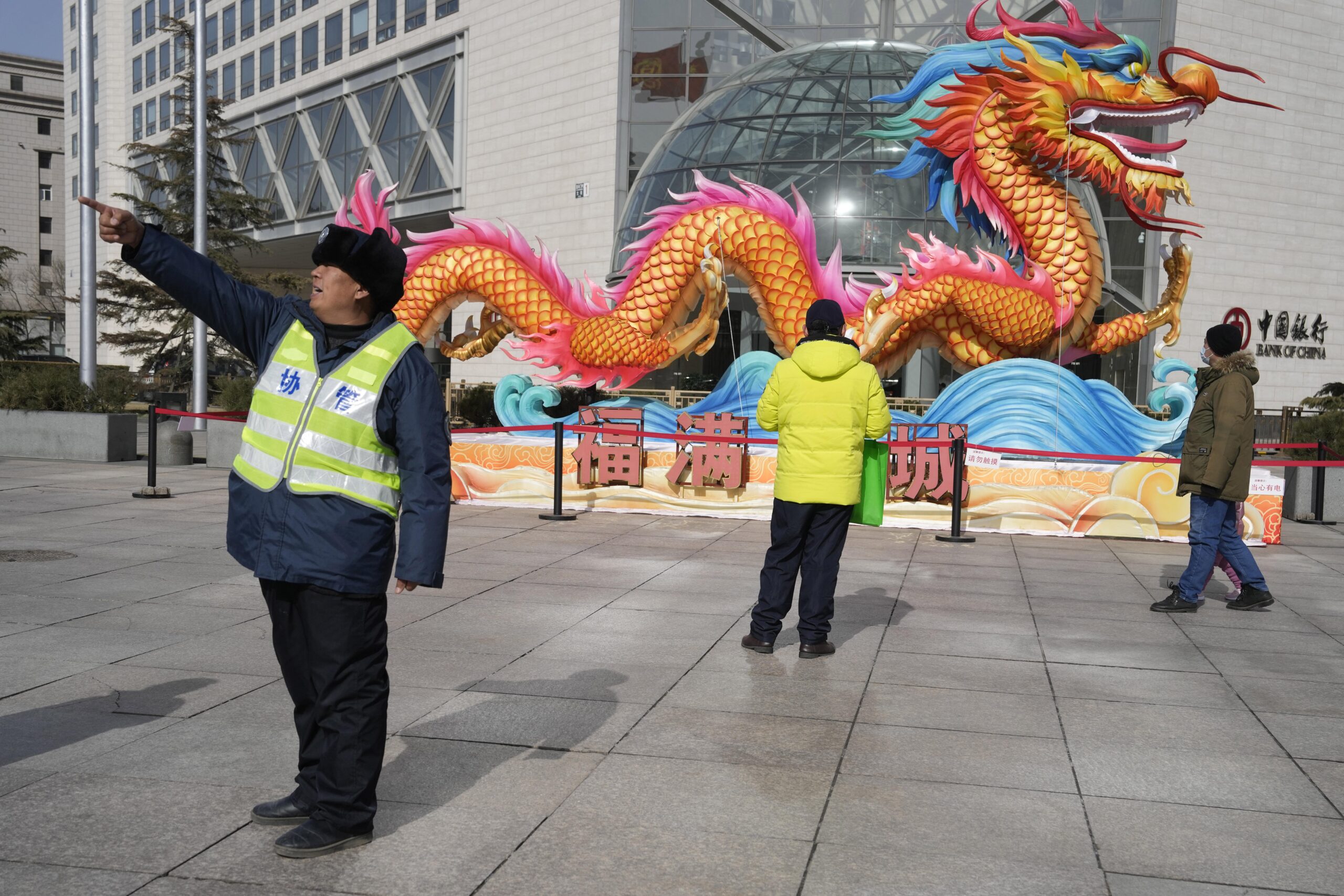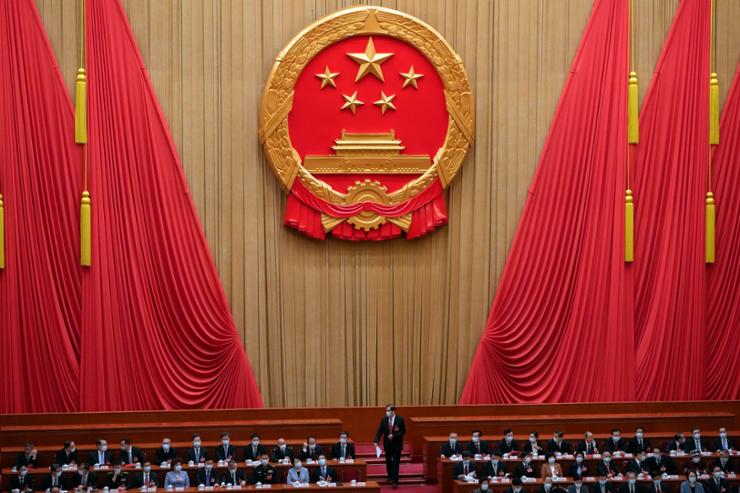Monday in Beijing, the National People’s Congress (NPC) and the Chinese People’s Political Consultative Conference (CPPCC) convene to begin the “Two Sessions” of China.
The occasion unites China’s political establishment alongside business, technology, media, and artistic leaders.
The concurrent meetings, known as lianghui in Chinese, are a yearly occurrence on the legislative agenda of China and last for an estimated duration of two weeks.
Legislators will ratify new legislation, appoint political officials, and review progress reports from governmental agencies, including the National Development and Reform Commission and the Ministry of Finance.
Which significant developments warrant attention?
Delegates officially endorsed Xi Jinping for an unprecedented third term as president during the Two Sessions of the previous year.
The event is anticipated to be significantly impacted by China’s lagging economy this year, as the country struggles with deflation, sluggish development, enormous debt, and declining exports.
The presentation by Premier Li Qiang of the annual work report, which will assess the government’s achievements and establish objectives for 2024, will be one of the most anticipated events.
Li is anticipated to deliver a speech in which he pledges to achieve an approximate 5 percent increase in economic development by 2024 and deliberate on prominent subjects including the declining birth rate in China and the trajectory of technology and regulation of artificial intelligence (AI).
Moreover, several crucial appointments might be scheduled.
Eleven members of the NPC’s Standing Committee, the permanent branch of the legislature consisting of 175 members, have been dismissed in the past year. Notable among these individuals are Minister of Defence Li Shangfu and Minister of Foreign Affairs Qin Gang.
Those who were expelled had military affiliations, including the Rocket Force of the People’s Liberation Army (PLA), which is responsible for the control of conventional and nuclear ballistic missiles in China.
What differentiates the two sessions from one another?
Although the NPC and the CPPCC are both state organizations in China that are legally distinct from the Communist Party of China (CCP), the CPP dictates a significant portion of their operations.
Officially, China’s highest legislative body is the NPC, which comprises nearly 3,000 members who are elected to represent the nation’s provinces, autonomous regions, major cities, the People’s Liberation Army, and the People’s Armed Police. Delegations of the NPC also represent self-governing Taiwan, an island contested by the CCP despite the absence of any historical evidence of Beijing exerting authority over it.
Delegates review progress toward policy objectives and vote to ratify new legislation and senior political appointments during the NPC, even though the majority of delegates have little political influence.
Despite being technically subordinate, the NPC Standing Committee is commonly perceived as possessing greater authority than the legislature in actuality, due to its frequent meetings that transpire between legislative sessions.
“The NPC does not function as a democratic parliament, wherein representatives are elected via fair elections; it is not comparable to a traditional parliament.” “Under the direction of the Communist Party, its deputies are elected by a small portion of the Chinese population,” Adam Ni, co-editor of the China Neican newsletter.
“Therefore, the NPC deputies are, at the very least, acceptable to the party.”
The CPPCC, an organization that convenes simultaneously and attracts over 2,000 delegates from China and the diaspora, is primarily a public relations exercise rather than a political advisory body.
Although not all delegates are CCP members, the gathering is an extension of the “United Front” initiative of the CCP, which seeks to unite diverse actors around shared objectives and expand China’s sphere of influence.
The CPPCC is attended by leaders from the media, technology, the arts, and Hong Kong and Macau, which are semi-autonomous regions.
“Among its many responsibilities is the facilitation of elite networking and the provision of the party-state with external policy advice.” Ni explained, “It functions as a mechanism of exchange, in which the Communist Party grants membership and access to the system, while the elites seated on the body obtain recognition and access to policymakers.”
Is the NPC merely a “rubber stamp” legislature?
The NPC is frequently characterized as a “rubber stamp” legislature or parliament because its primary purpose is to formally endorse predetermined decisions with minimal if any, explicit deliberation.
According to observers of China, the NPC remains significant to monitor.
Rarely has it featured demonstrations of dissent; however, it is capable of incorporating limited public input on matters that are not deemed overly sensitive.
Notably, one-third of delegates abstained from or voted against authorizing the Three Gorges Dam, a contentious undertaking intended to dam the Yangtze River, in 1992.
“The NPC has never rendered a negative vote on any proposed legislation, work report, budget, or nomination, which has earned it the moniker ‘rubber stamp’ among the public. “However, that overly narrow focus on the outcomes of NPC votes disregards the crucial role that thousands of NPC delegates played in representing citizen interests on a variety of politically non-sensitive issues,” Changhao Wei, a fellow at the Paul Tsai China Centre of Yale Law School.
Although delegates cannot be heard debating on the floor, individual delegates and bodies such as the NPC Standing Committee can influence legislation during the drafting process and offer input on matters such as the national budget.
Additionally, delegates may introduce individual legislation urging the NPC to take action on timely, critical issues.
Delegates introduced several bills in 2022, which addressed domestic violence and women’s rights, in response to public indignation over the discovery of a trafficked woman with mental health issues being chained by her spouse.
Wei stated that although these measures did not undergo public debate, their existence would have been recognized even within the government.
Ni stated that the CPP, despite its ironclad hold on power, is not a unified entity, but rather “contains a multitude of interest groups and networks.”
Ni stated, “Non-party organizations and personnel are also involved in the legislative process.”
“We should not underestimate the influence that certain groups, such as environmentalists and women’s rights advocates, can have.” The political structure, however, restricts the influence and power of non-party individuals and organizations, as the party monopolizes the instruments of state power.





